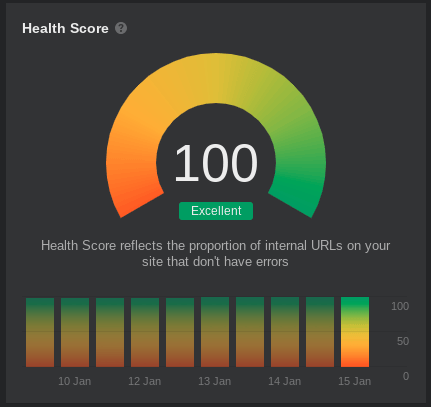Unlock SEO success: Learn how we use HubSpot Content Hub for SEO, boost rankings, increase organic traffic, and optimize our content for success.
How to Fail at SEO - It is Easier Than You Think
SEO. Something you vaguely remember dealing with, what was it, back in 2019? You're not alone in neglecting your site's search engine optimization. Yet, SEO is alive and kicking. It's just as important as ever. This website gets more than 80% of its traffic from Organic Searches. It's also easy to do poorly as never before. Throw everything into ChatGPT and be done? Have at it.
With over 90% of all internet searches, Google rules the search world and upgrades that search with frequently updated algorithms to move the focus to different site areas to determine where it ranks on the search engine results page (SERP). As long as this is the case, SEO will remain a topic of much debate and, indeed, much utility for those who stay away from these surefire ways to fail at SEO.
By relying on the "one keyword per page" method
-
Long-tail keyword searches make up over 70% of all Google searches. People search for more specific queries and phrases rather than just one or two words.
-
Over 50% of searches are done on mobile devices, and voice search is becoming increasingly popular, with 55% of households having a smart speaker (in addition to yourself). As a result, we need to optimize content for longer, more conversational queries that people use when they speak and type into search engines.
People aren't searching for "brisket" anymore; they're searching for "brisket recipe with no ketchup" or "what's that meat dish my grandma made every spring?"
True; there was a time when ranking for single keywords, like brisket, was the ultimate goal of SEO activities, and sites would cram their pages with those keywords. It wouldn't have been uncommon to find a single blog post with the word brisket repeated dozens of times. As a result of how off-putting this was to readers, Google adjusted their search to be more semantic and down-ranked sites that stuff keywords like that.
The way to rank now is about choosing the right keywords and including "keyword phrases" throughout your content naturally. So rather than trying to use the single keyword dozens of times, work on using them only as often as sounds natural, and include it in phrases people are using to search (which you can find by doing keyword research, of course). "Brisket recipes for spring," "How to make mouth-watering brisket in 5 easy steps," and the like.
By forgetting the basics, like the fact that duplicate content is bad
Duplicate content on a site is not grounds for action on that site unless it appears that the intent of the duplicate content is to be deceptive and manipulate search engine results. If your site suffers from duplicate content issues, and you don’t follow the advice listed in this document, we do a good job of choosing a version of the content to show in our search results. (Google)
There is one more scenario where duplicate content may pop up: on a site that's been languishing, unloved, for years. If you're tasked with bringing a decrepit corporate site back from the brink, content marketing is your method of choice.
Take the time to comb the site for pages that appear multiple times or blog posts that seem to have been posted more than once.
- The five ways to rank on Google
- 25 Benefits of Ranking in Search
- How Search rankings can be beneficial to your business
Consolidate the above duplications into one long-form and meaningful contribution and keep improving it rather than writing another tweak to the same theme and publishing it as new. You confuse Google in its quest to select your best contribution and annoy your readers.
By thinking that once you've "done" SEO, you're done
This is a biggie. There are unscrupulous hucksters out there selling fix-all solutions to your SEO woes. They may do a decent job optimizing your site as it exists on the day you run the program. But what happens next week? Or next month?
SEO done right can increase organic searchers and leads...if you nurture it and update your tactics to keep up with the ever-changing landscape.
Each new page you upload, be it a landing page for a special offer, a blog post, or even a redo on your careers page—should be optimized. When you have a cluster of posts that circle a pillar page on that topic, each page needs to be updated with the right links and CTAs, not only so your existing readers can navigate them but so new readers can find them in the first place. These so-called topic clusters are one of the newer additions to Google's algorithm. They increase people's trust in you and your content, increase the authority Google sees in your content, and finally increase their pull on your ranking.
You might also like:
By failing to see the big picture
Move from "ranking a post" to becoming a "topic authority":
-
Define Topic Clusters: Grouping content around a central topic or pillar page, topic clusters create a more comprehensive and authoritative online presence that search engines like Google recognize and reward with higher search rankings. Topic clusters allow for targeting long-tail, lower-volume keywords, which can increase search traffic and engagement and help gain greater visibility.
-
Metrics matter: If your latest content marketing campaign works, having the data to back you up at your next shareholder meeting is always good. And conversely, if the campaign is failing, knowing ASAP so you can pull the plug will save time and money.
-
SEO is not only about ranking and SERP placement: It's about business results. It's about working together to achieve great things for your customers.
-
SEO is a long game: The changes you make this week may not have a visible impact on your bottom line for weeks or even months. That doesn't mean you stop doing it. It means you must remember and use those metrics to back up your successes.
-
Quality content is still your #1 asset in content marketing: You will reap SEO rewards over time by publishing it regularly and consistently and nurturing it via social media and other forms of propagation.
-
Perform regular Content/SEO Audits. Performing a frequent SEO Audit for your website should be a standard practice in your website operations; we perform daily SEO Audits for our site.

Building a solid SEO foundation matters more than ever to increase traffic and lead conversions. While the specifics, algorithms, and results have changed, the underlying fact remains that you need to pay attention to your site's SEO to rank and be selected by AI to be presented as "the one answer."
Don't forget the basics, don't become complacent and neglect your existing pages, and don't fall into any other traps discussed above, and you'll be off to a great start!
This content is also available in:
- German: Mit SEO scheitern - Es ist einfacher als Sie denken
- Spanish: Cómo fracasar en SEO - Es más fácil de lo que crees
- French: Comment échouer dans le SEO - C'est plus facile que vous ne le pensez
- Italian: Come fallire nella SEO: è più facile di quanto si pensi
- Romanian: Cum să eșuați la SEO - Este mai ușor decât credeți
- Chinese: 如何在搜索引擎优化中失败--比你想象的更容易










Leave a Comment